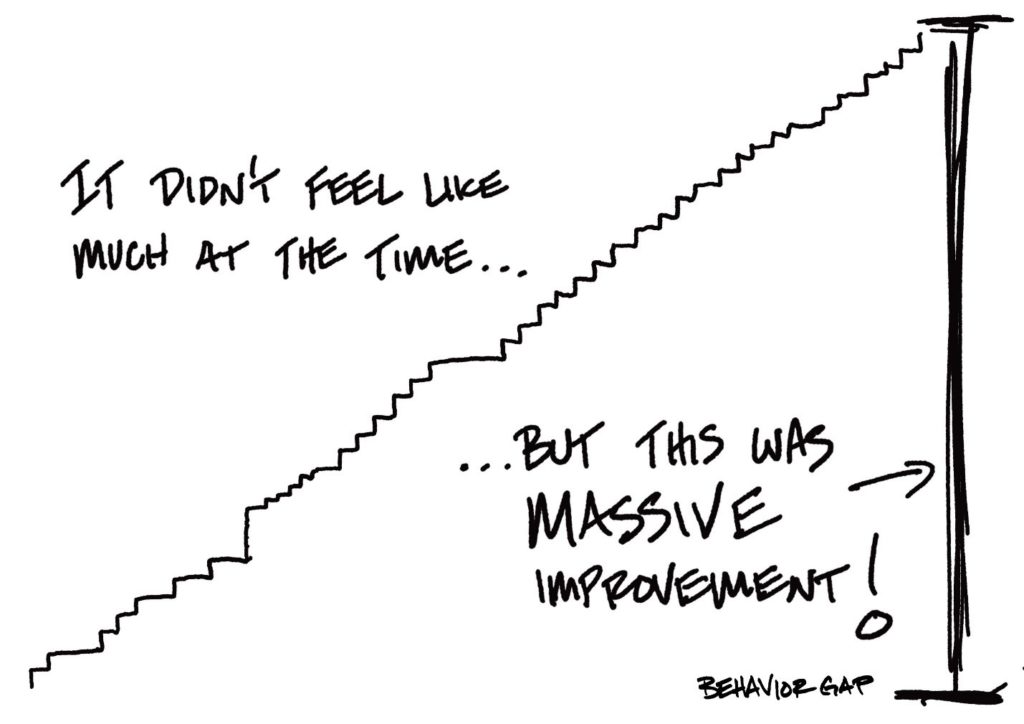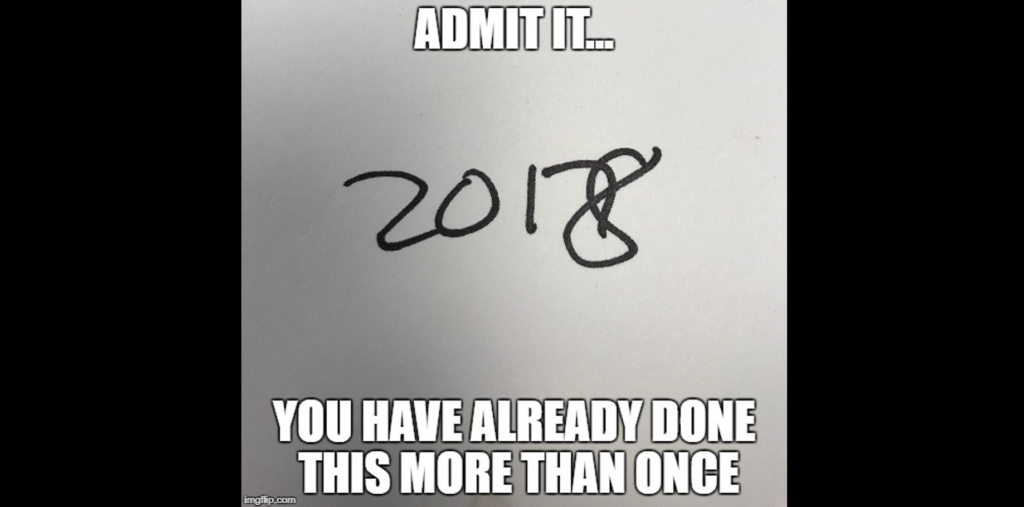If you are a client and occasionally skip reading a Monument Blog, please take a few minutes and read this one.
Now that we have entered 2018, Monument is celebrating a DECADE anniversary. It’s amazing to type that. A decade.
In January of 2008, the founders of Monument were sitting at a major wirehouse unaware of the doom that would be foisted upon the world in the latter part of the year. But, what we were sure of was that the corporate world we were living in was (and still is) broken. We knew it was not the place to run a business that was designed to put clients’ interests first.
By the late afternoon of May 23rd, 2008, we had publicly announced the formation of Monument Wealth Management. Clients joined us…and new clients have continued to join us for a decade. We will NEVER take the trust and confidence you have placed in us for granted, nor will we ever forget you for being a part of what we have built over ten years.
I am working on a 2017/2018 blog post, but I wanted to share these thoughts separately.
I came into this industry fresh out of the Marine Corps and an MBA program in 1999. I was hired by Donaldson Lufkin and Jenrette, one of the most extraordinary investment banks in existence at that time. Along with about 30 other new hires, I entered what was considered to be one of the most demanding training programs on The Street. Almost 20 years later, having survived 2000/2001, bank mergers, business model changes, a demoralizing stint at a large wirehouse firm and finally co-founding Monument in May of 2008 just weeks before the financial crisis started, I’ve learned a few things.
They are worth sharing.
What I’ve Learned Over the Past 20 Years
- People work with others that they like and trust…and it’s a two-way street.
- There is a difference between having a real financial plan and having an asset allocation, but they are often obfuscated by those who have something to sell.
- There is a difference between having a real financial plan and having an asset allocation, but they are often misunderstood by investors.
- Most investors have absolutely no idea what they are really paying in fees – but they think they do.
- Most investing success comes from controlling personal emotional behavior – by both investors and advisors.
- Most of the time, the best advice we give is to do nothing. However, people have a hard time valuing that. They mistake unnecessary action as good, proactive advice.
- A lot of advisors I have met are trained and conditioned to appeal to investors’ emotional needs. Unsurprisingly, they tend to work at the big financial firms.
- I have yet to listen to a quarterly earnings conference call of a major financial institution and hear them talk about the best interests of their clients. Their focus is on shareholders.
- Many investors focus on the rearview mirror instead of what’s in front of them through the windshield – this is a mistake.
- Managing expectations is much harder than managing money – trust me on that.
- Investors with a plan and a well-diversified portfolio will always have something that goes down in value, even in years like 2017. As a result, they will always be let down by something they own.
- Predictions are like a good novel. They are generally fun to read, grounded in something believable, but still made up.
- Reviewing performance is like watching Law and Order SVU – it’s a story ripped from the headlines…sometimes it ends well and sometimes not, but it’s all still history.
- People are incorrectly conditioned to compare their performance against a market benchmark instead of comparing it to the return necessary to achieve the goals of their plan. A benchmark is not a financial plan and unlike you, a benchmark does not have goals, time horizons, risk tolerances, college to pay for or a retirement to fund.
- Past performance is no guarantee of future results when selecting someone to run your portfolios. The best bet is to hire someone you think is smart, has passion, conviction, an opinion and knows their shit.
- Advisors who claim they can pick the “Best of Breed Money Manager” are full of bunk. These advisors are generally identified in the wild by their opulent cufflinks, expensive watches, $2,500 handbags, pocket squares and sales awards on their office wall. The best part? They actually think that crap is important.
- Alternative investments and exclusive investment opportunities (i.e. hedge funds and other illiquid complicated products) are generally nothing more than a compensation scheme masquerading as a “must have” asset class. I remain unconvinced that anyone of any level of wealth needs them.
- A hard part of my job is telling people what they need to hear versus what they want to hear. That’s risky, because there is always an idiot right around the corner that will give them the latter. They usually come adorned with flashy cufflinks and pocket squares.
- No one is able to control anything, nothing is precise, and everyone is guessing – the key is to use probabilities when guessing and not emotions.
- Having a deliberate plan and investment strategy created under calm, thoughtful conditions and sticking to it generally produces better results than trying to chase different investment strategies – but chasers gonna chase.
- It can be time-consuming and almost impossible to be precise…making it less important than just being accurate. Executing on an accurate plan and making future adjustments is always better than never executing on the perfect plan.
- Everyone wants an investment strategy that captures the upside of the market while eliminating the downside. Anyone offering that is a charlatan or a fool…or both. Anyone buying it is, too.
- Overmanaging the downside risk is dangerous. It usually leads to missing the upside.
- If I could have put all of my clients to sleep on January 1st, 2009 and awakened them on December 31st, 2017, they would have seen that the S&P 500 was up around 255%. They would have missed 2011, 2012, credit downgrades, the Fiscal Cliff, Greece, China, Ebola…and the Gamecocks Men’s Basketball team making it to the Final Four.
- Simplicity is elegant. The best risk management comes from having a plan and knowing 12 months out when you will need cash. Want less risk? Have more cash. Boom.
- The best way to run an advisory practice that executes in the best interests of clients is to remove impulses to act on your gut by having a process and investment models. Good models act as an unemotional compass in the dark and are supported by theory, data, research, a lot of common sense and experience.
- Process eclipses narrative, supposition and conjecture.
- I’ll take passion, grit and curiosity over a degree from an Ivy League school any day of the week – they usually have better stories, too.
- Nothing can predict the top or the bottom of the market – especially your gut…or someone else’s.
- The hard thing about being an advisor or an investor is understanding that the best advice is boring, basic and really does not change that much. This leaves people susceptible to the siren song of buying something they think is better or different (sung by those with the expensive cufflinks or handbag).
- There is always a recession coming – it is just hard to tell exactly when.
- Finally, I’ve learned that if you find something you love to do, you’ll never work a day in your life.
I love what I do and I love what we have built here at Monument. Not every year of the past 10 were easy, and I’m sure there will be other hard years down the road. I love our clients, not only because they like and trust us, but also because they always seem to find the time to say “thank you”. I cash my paycheck at the bank, but I cash those thank you’s into my soul. Our clients are the single purpose of every day of the past 10 years. The greatest part of every day is opening the door of the shop and walking in. I’ve learned that there is nothing more satisfying than having the best Team in the industry choose to work here. What an honor. They are total pros and they love what they do, too.
Here’s to a great 2018!
Thanks to Carl Richards @behaviorgap for the below…the king of “simplicity is elegant”.

Important Disclosure Information
Please remember that past performance may not be indicative of future results. Different types of investments involve varying degrees of risk, and there can be no assurance that the future performance of any specific investment, investment strategy, or product (including the investments and/or investment strategies recommended or undertaken by Monument Wealth Management), or any non-investment related content, made reference to directly or indirectly in this blog will be profitable, equal any corresponding indicated historical performance level(s), be suitable for your portfolio or individual situation, or prove successful. All indexes referenced are unmanaged and cannot be invested into directly. The economic forecasts set forth may not develop as predicted. Due to various factors, including changing market conditions and/or applicable laws, the content may no longer be reflective of current opinions or positions. Moreover, you should not assume that any discussion or information contained in this blog serves as the receipt of, or as a substitute for, personalized investment advice from Monument Wealth Management. To the extent that a reader has any questions regarding the applicability of any specific issue discussed above to his/her individual situation, he/she is encouraged to consult with the professional advisor of his/her choosing. Monument Wealth Management is neither a law firm nor a certified public accounting firm and no portion of the blog content should be construed as legal or accounting advice. A copy of Monument Wealth Management’s current written disclosure statement discussing our advisory services and fees is available for review upon request.




